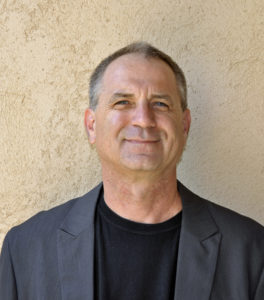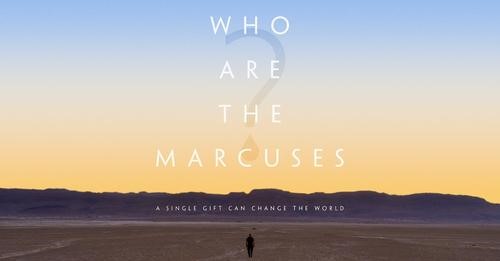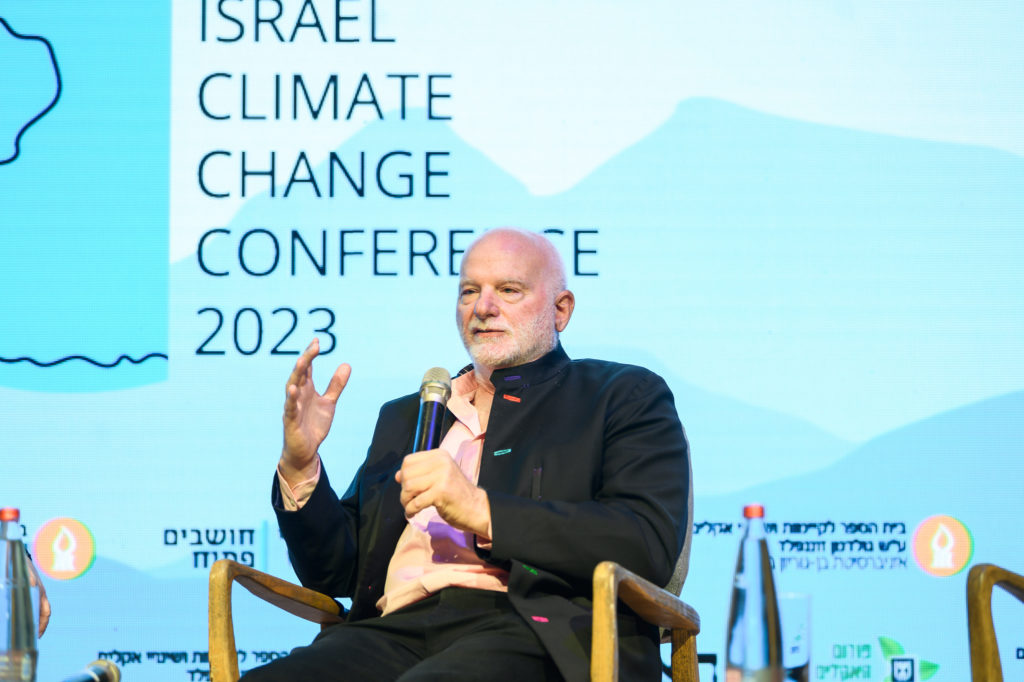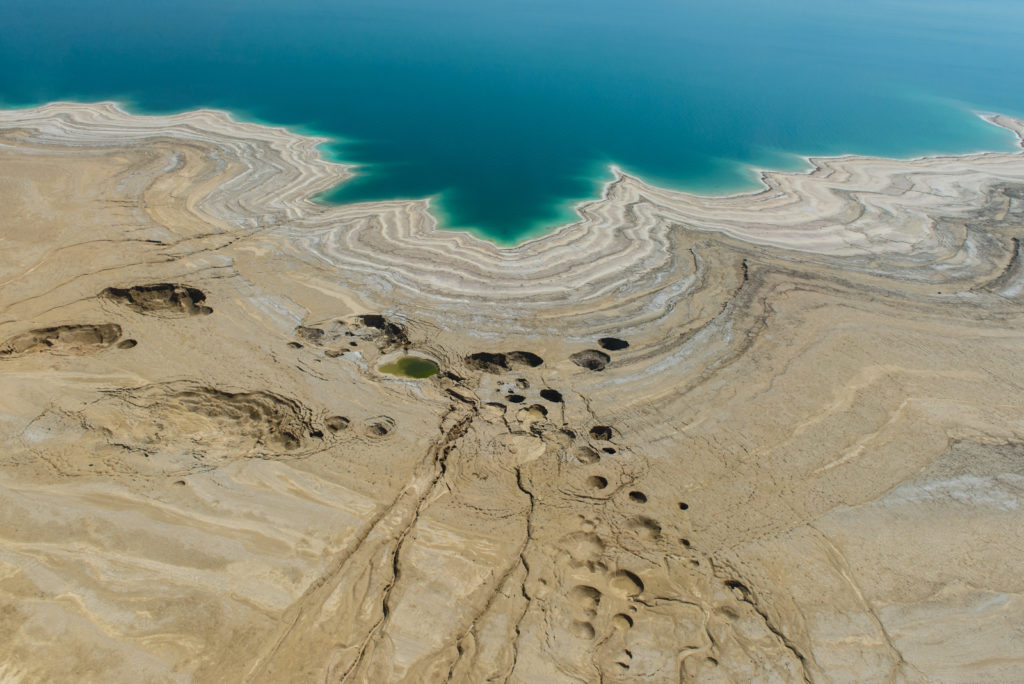
Water Institute Appoints Noam Weisbrod Director
Water Institute Appoints Noam Weisbrod Director
November 9, 2015
Desert & Water Research, Press Releases
BGU announces the appointment of Prof. Noam Weisbrod as director of the Zuckerberg Institute for Water Research (ZIWR) in the Jacob Blaustein Institutes for Desert Research.
Prior to being named director, Prof. Weisbrod was head of the ZIWR Department of Environmental Hydrology and Microbiology and the director of the Blaustein Center for Scientific Cooperation. He joined ZIWR in 2002.
Prof. Weisbrod assumed the position held for the past 10 years by Prof. Eilon Adar, who became deputy dean of the Blaustein Institutes. “We are the largest and the leading water research group in Israel,” says Adar. “Prof. Weisbrod will be able to further leverage our strong, worldwide reputation and share our know-how with the world.”
“We have 19 researchers at the Zuckerberg Institute who together with their technical staff and graduate students conduct basic and applied research to improve technologies and find new ways to safeguard our common water future,” Weisbrod explains.
“We look forward to continued growth as the demand for water expertise and solutions continues to increase.”
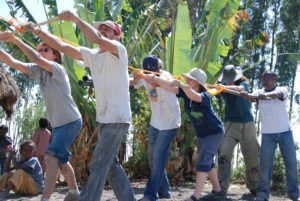
BGU students help local villages in Uganda and Zambia secure safe, clean water and train local people to build, test and maintain water systems.
Water research at BGU has served Israel well. Zuckerberg Institute experts have helped perfect the use of drip irrigation and fertigation, which delivers water and fertilizer to plants in precise amounts. They have contributed prominently to the national system that reclaims sewage water and treats it for re-use in agriculture, and are improving the efficiency of desalination and inventing other water resource technologies. BGU water specialists have also helped develop the country’s four major desalination plants, which can supply more than 30 percent of Israel’s water needs.
This past year, BGU experts have been called to consult on water emergencies in places such as California and Colorado, as well as the long-term assistance it provides to Mongolia, Kenya, Uganda, Zambia, Chile, and Central Asia.
“In the past, we thought water scarcity issues weren’t relevant to developed countries,” Weisbrod says. “Money and technology aren’t problems there, but it’s now a different story.”
Weisbrod’s own major research direction is related to hydrological problems in aquifers and unsaturated systems. He focuses on contaminant transport in the subsurface, and the processes occurring at the interface between fluids, phases and the fluid-matrix, as well as the transition between scales. His work includes exploration of gas and nanoparticles transport in complex porous and fractured systems. Weisbrod was a member of several delegations focused on water problems in developing countries, including the Israeli delegation in the UNCCD convention in Namibia.
Weisbrod also established a course called “Rural Water Development” to further educate students so they can finish their Ph.D. or M.S. with a full understanding of these problems. In the past few years, Prof. Weisbrod has brought groups to villages in rural areas of Ethiopia, Zambia and Uganda. In each locale, students work with local people to identify their water sources and test their quality, teach children about hygiene issues and educate people about the aquifer. Projects range from drilling wells with local materials to building storage tanks to collect rainwater and installing bio-sand filters to reduce contamination.
“The projects are deliberately low-tech so local villages can easily replicate and maintain them,” he says.
BGU labs develop novel methodologies and technologies that ZIWR is sharing in the U.S., worldwide and even with the Palestinians and other countries that do not currently have diplomatic relations with Israel.
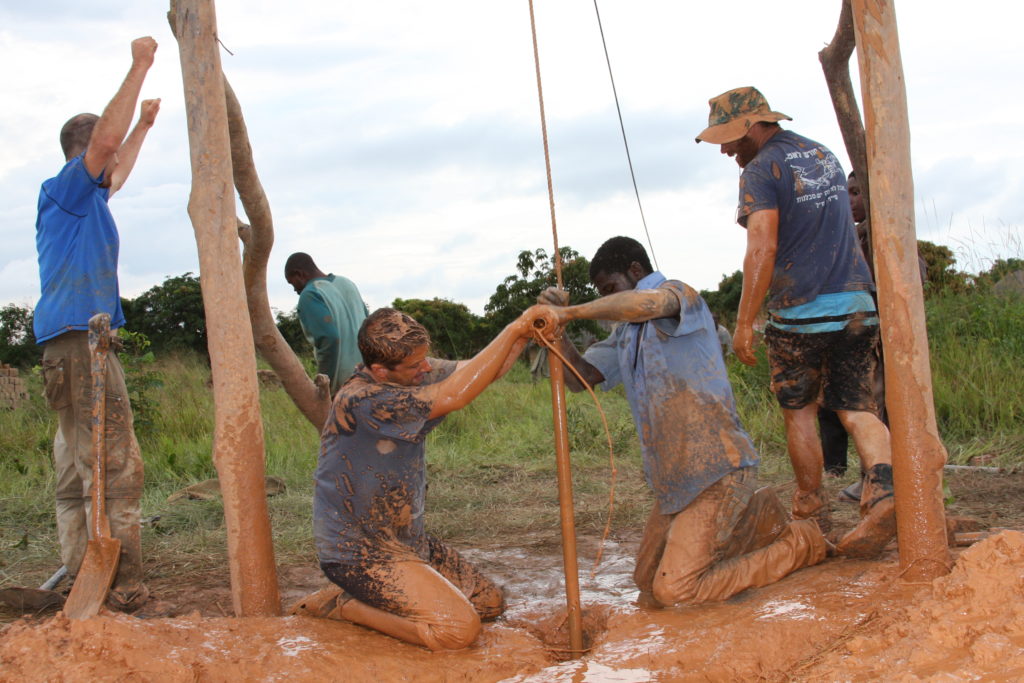
Students help a village in Zambia access clean water. Many Rural Water Developments projects are deliberately low-tech so local villages can easily replicate and maintain them.
Prior to his arrival at BGU, Prof. Weisbrod spent a couple of years as a post-doc and a research professor at the Department of Bioengineering at Oregon State University. His publications include more than 70 peer-reviewed papers and 20 book chapters. He supervised more than 40 graduate students.
Prof. Noam Weisbrod earned his Ph.D. in 1999, an M.S. in 1993 and a B.S. in 1990 in soil and water sciences. He lives in Midreshet Ben-Gurion in Sde Boker with his wife and two children.
Read more about water research at ZIWR in the cover story of Impact Fall 2015.
ABOUT AMERICANS FOR BEN-GURION UNIVERSITY
By supporting a world-class academic institution that not only nurtures the Negev, but also shares its expertise locally and globally, Americans for Ben-Gurion University engages a community of Americans who are committed to improving the world. David Ben-Gurion envisioned that Israel’s future would be forged in the Negev. The cutting-edge research carried out at Ben-Gurion University drives that vision by sustaining a desert Silicon Valley, with the “Stanford of the Negev” at its center. The Americans for Ben-Gurion University movement supports a 21st century unifying vision for Israel by rallying around BGU’s remarkable work and role as an apolitical beacon of light in the Negev desert.
About Ben-Gurion University of the Negev
Ben-Gurion University of the Negev embraces the endless potential we have as individuals and as a commonality to adapt and to thrive in changing environments. Inspired by our location in the desert, we aim to discover, to create, and to develop solutions to dynamic challenges, to pose questions that have yet to be asked, and to push beyond the boundaries of the commonly accepted and possible.
We are proud to be a central force for inclusion, diversity and innovation in Israel, and we strive to extend the Negev’s potential and our entrepreneurial spirit throughout the world. For example, the multi-disciplinary School for Sustainability and Climate Change at BGU leverages over 50 years of expertise on living and thriving in the desert into scalable solutions for people everywhere.
BGU at a glance:
20,000 students | 800 senior faculty | 3 campuses | 6 faculties: humanities & social sciences, health sciences, engineering sciences, natural sciences, business & management, and desert research.
For all press inquiries, please contact:
James Fattal, J Cubed Communications
516.289.1496

